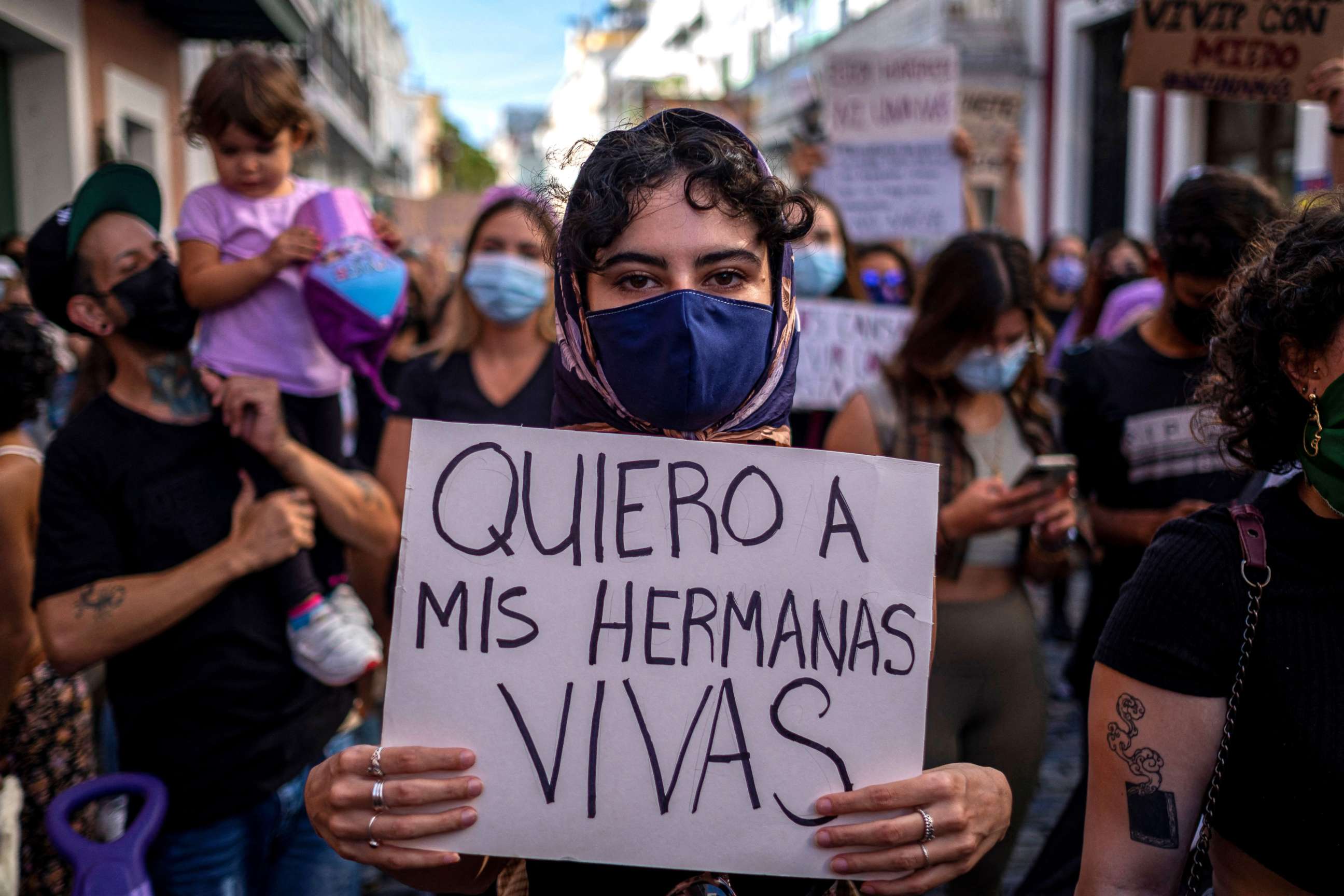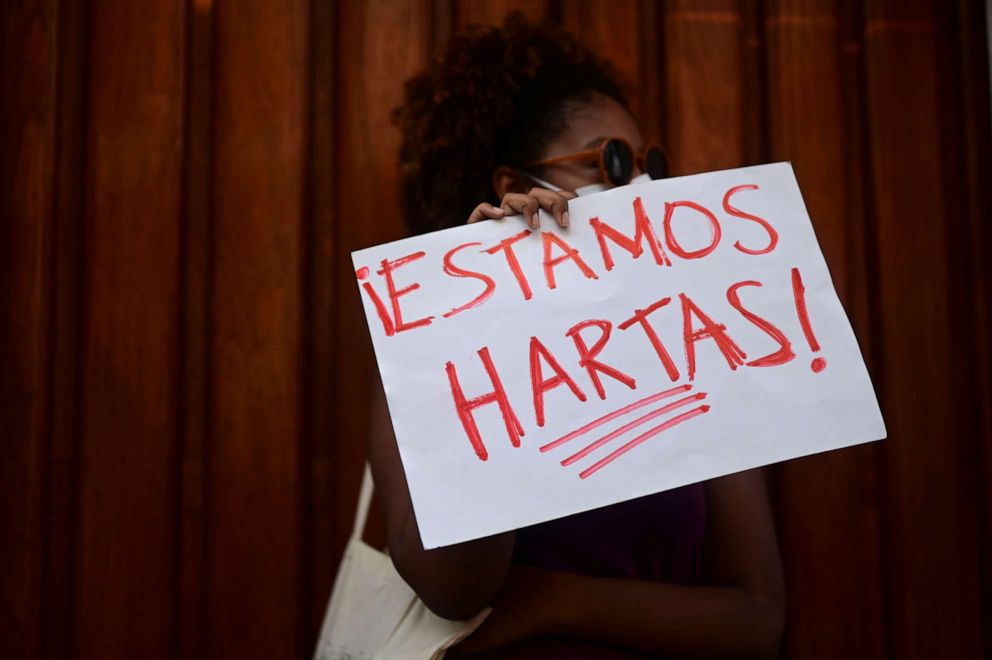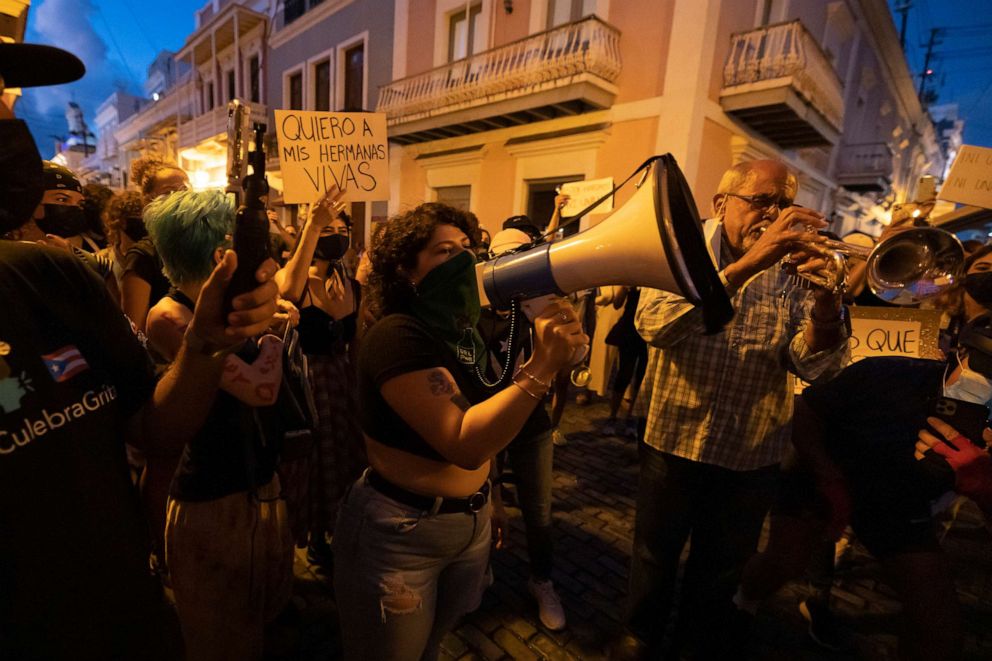Months into state of emergency, Puerto Rico finally approves $7 million to combat gender-based violence
An uptick over the last four years had protesters demanding government action.
More than 100 days after declaring a state of emergency, Puerto Rico finally will have some funding to address an alarming rise in gender-based violence on the island.
The Financial Oversight Management Board, which is in charge of the island's finances, on Wednesday approved a $7 million request by Gov. Pedro Pierluisi to be used for different programs aimed at preventing gender-based violence.
"We favor the Fiscal Control Board's decision to allocate the $7 million budget ... for the implementation of public policy to eradicate sexist violence," Colectivo Feminista, a community-based group, wrote on Twitter.
The international nonprofit Women for Women defines gender violence as violence directed at an individual based on their biological sex or gender identity. This includes physical, sexual, verbal and emotional abuse.

Since 2018, Colectivo Feminista had been pushing leaders in Puerto Rico to declare a state of emergency as gender-based killings increased. The government did so on Jan. 24, but the delay in approving the funding proved frustrating for local advocates, hundreds of whom took to the streets on Sunday and Monday, demanding action.
"A state of emergency only seen in paper are dead words," said Zoan Davila Roldan, a cofounder of Colectivo Feminista.
According to an analysis from GEN and Type Investigations, the intimate partner murder rate in Puerto Rico rose to 1.7 per 100,000 women in 2018, up from 0.77 per 100,000 in 2017.
In 2020, 60 gender-related killings were reported, according to Puerto Rico's Gender Equality Observatory. At least 21 gender-based killings have been reported this year, among them Andrea Ruiz Costas and Keishla Rodriguez Ortiz.
According to her family, Rodriguez Ortiz had been romantically involved with Felix Verdejo-Sanchez, an Olympic boxer for Puerto Rico. Rodriguez Ortiz's mother said the 27-year-old was pregnant and had received threats from Verdejo-Sanchez, including demands to terminate the pregnancy. Ortiz went missing, and two days later her body was found in the San Jose Lagoon, near Luis Muñoz Marín International Airport in Carolina.
Verdejo-Sanchez has been charged with kidnapping resulting in death, carjacking resulting in death and killing an unborn child, according to the Department of Justice, and Judge Camille Vélez ruled on Monday that he would remain in jail, with no option of bail, until a preliminary hearing. A federal grand jury indicted Verdejo-Sanchez and an alleged accomplice on Thursday.
Ruiz Costas' body was found brutally burned in the town of Cayey on April 29. After her partner was identified as a possible suspect, he came forward and confessed, according to local authorities. In March, the 35-year-old twice filed for a restraining order against her partner but was denied.
"The state and the system is responsible," Davila Roldan told ABC News. "There is a failure in the system."

Pierluisi held a press conference on Monday to address both cases, and he acknowledged the state's fault in Ruiz Costas' case.
"The system failed Andrea," he said.
After the state of emergency was declared and the $7 million was requested, the FOMB initially approved just $200,000. Because Puerto Rico is going through a bankruptcy that began in 2016, the FOMB has the final say in all economic decisions of the government. The island has over $100 billion in debt and pension obligations.
In an April 27 letter to Pierluisi, the FOMB wrote, in part, that the government "should further evaluate other funding sources."
"I don't want to hear excuses from the board," Pierluisi said on Monday.

The $7 million, now approved, will help reinforce the work of the specialized committee called PARE, an acronym in Spanish that means Prevention, Support, Rescue and Education of Gender Violence. It was created after the state of emergency was declared and consists of organizations that work closely with experts and representatives from gubernatorial agencies.
"Organizations have been doing unbelievable work analyzing the different hurdles the system has," Vilma Gonzalez, a PARE committee member and director of the nonprofit Paz Para La Mujer, which roughly translates to Peace For Woman, told ABC News.
Gonzalez said she was among those worried about the lack of urgency in approving the funding.
"There needs to be a commitment from gubernatorial agencies," Gonzalez said. She and other colleagues also said they've experienced delays in distributing paperwork needed to complete the action plan.
For Davila Roldan of Colectivo Feminista, the fight against gender violence will continue until real change is visible.
"The state has to do their part," she said. "We are taking the streets to put pressure."



